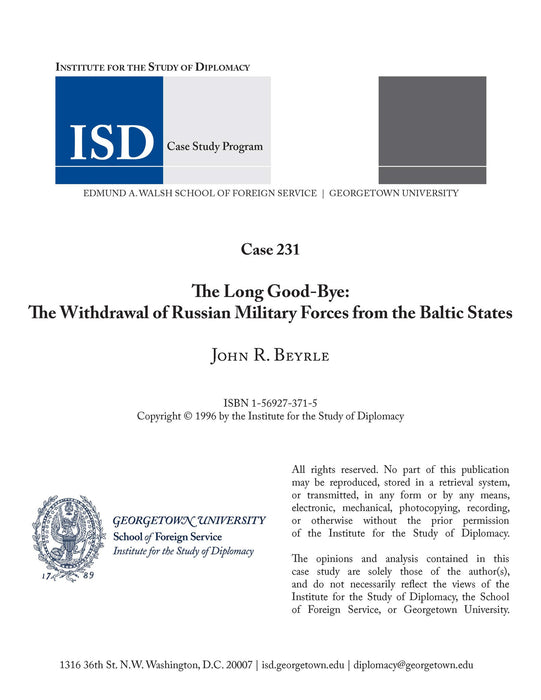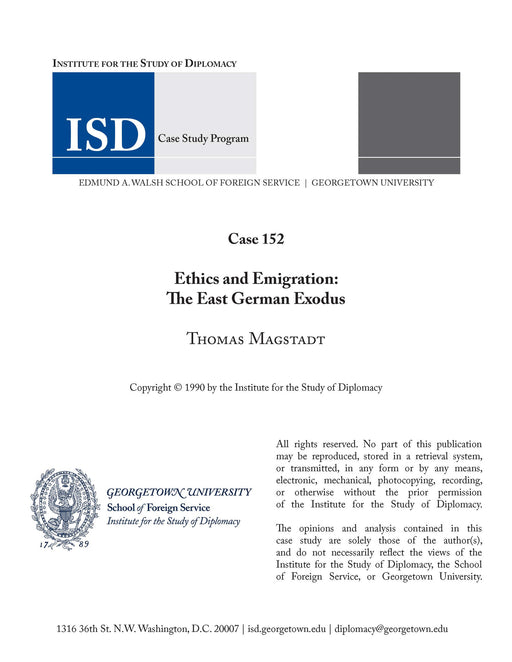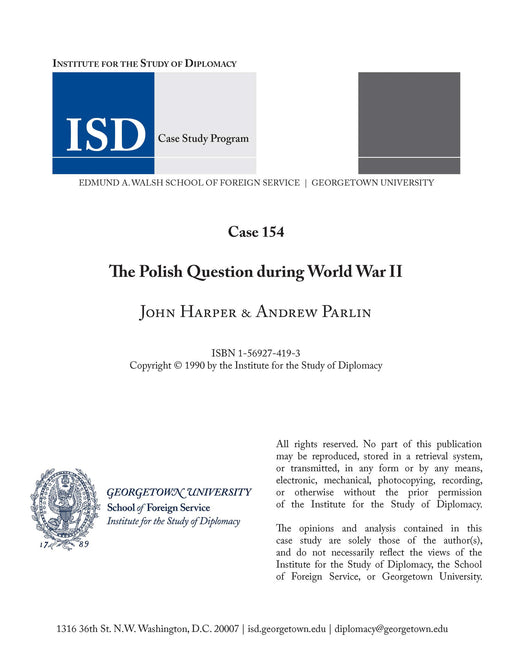Case 231 - The Long Good-Bye: The Withdrawal of Russian Military Forces from the Baltic States
Beyrle, John R.
This three-part case study describes the complexities of negotiations over Russian troop withdrawals largely from the Baltic perspective, drawing in particular on the recollections of Estonia’s foreign minister. Part A describes how Russia and Lithuania worked out an early agreement and recounts how Russian relations with Latvia and Estonia deteriorated through 1992 and 1993, culminating in a breakdown in the negotiations in early 1994. Part B details the involvement of the United States and other Western powers in the Russian-Baltic discussions, leading to the Russia-Latvia agreement, and describes Estonia’s unsuccessful effort to get a similar deal. Part C briefly describes the climactic Russian Estonian meeting that resolved the issue once and for all.
This case study illustrates the dilemma faced by a small, newly independent state as it seeks negotiating advantage against a large and powerful neighbor; demonstrates how diplomacy conducted at the highest levels can be wholly unpredictable, yet decisive; describes the advantages and drawbacks of the involvement of outside powers in bilateral relations between states, especially the role of a superpower (the United States) in post-Cold War mediation efforts; and spotlights how states manage contradictory interests. It can be usefully assigned along with “From Russia to Kaliningrad: The Case of Russian Transit Rights Through Lithuania” (Case Study 230).



